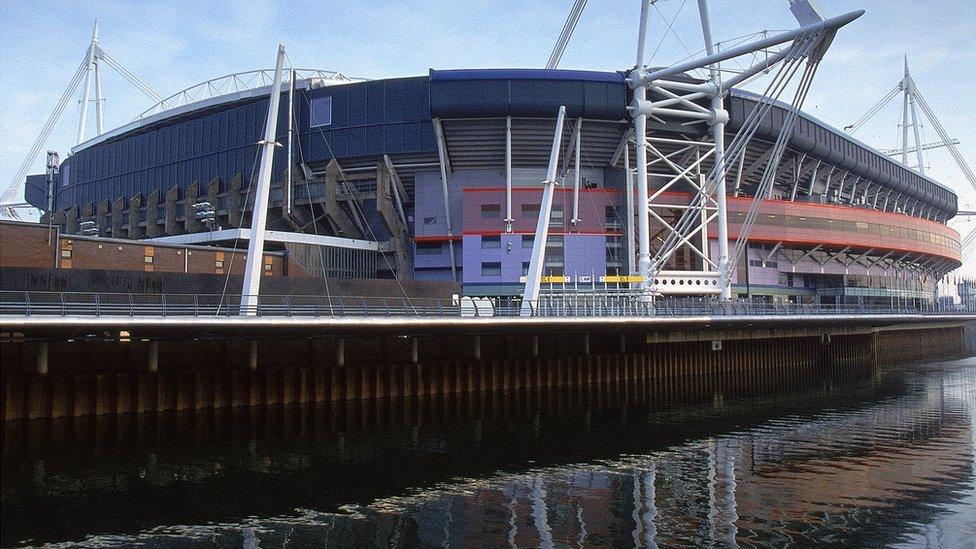How hosting sports events 'changed perceptions of Wales'
- Published
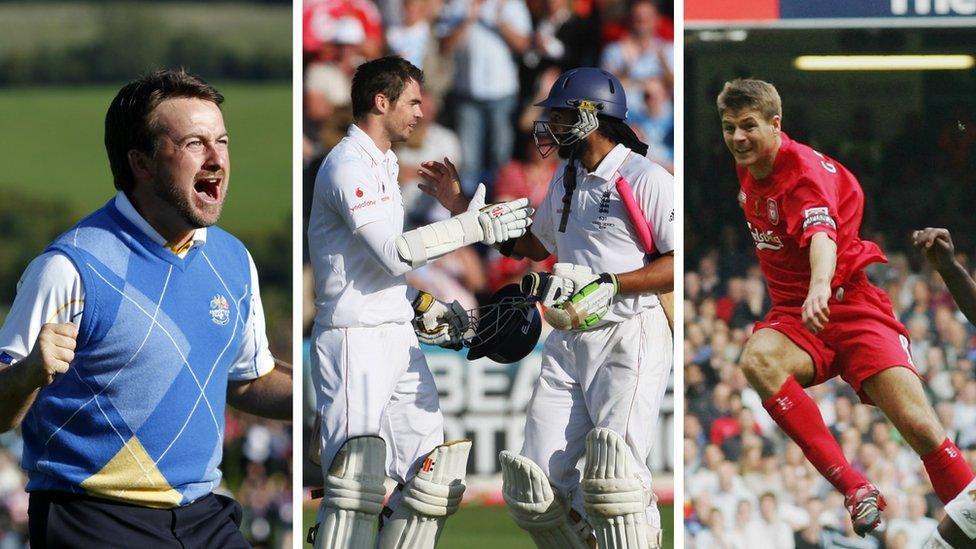
Steven Gerrard's FA Cup final screamer? Graeme McDowell's dramatic Ryder Cup clincher? Panesar and Anderson's heroic Ashes resistance?
They are just a few memorable moments from major sporting events hosted in Wales in the past 20 years.
But the piece de resistance for Wales is on the horizon.
You may be able to add a Gareth Bale Champions League final belter to that list by the end of the week as footballing heavyweights Real Madrid and Juventus will battle to become Europe's best club team in Cardiff on 3 June.
The Welsh Government estimates hosting the event will be worth £50m to Wales in "advertising equivalent" - more than treble tourist firm Visit Wales' annual budget - as an estimated 200 million people in 180 countries watch the world's biggest club football game.
"This exposure is difficult to buy unless you are a super power, it is hugely valuable," said Economy Secretary Ken Skates.
Wales' powerbrokers feel their new-found reputation for staging annual sporting spectacles has changed the perception of a country which may have once been perceived as a bit of an outpost.
200 million will watch Champions League final from Cardiff
"The plan is designed to change perceptions of Wales," added Mr Skates.
"But it is now principally used to increase the visitor economy - and economic impact of every major event is carefully assessed before we support any bid.
"You need a hook to get people into Wales, you need events that magnetise and sporting ones are obvious to get people into Wales."
Right place, right people, right time
Luring major events to Wales happened by accident rather than by design, as a result of friends in high places and a billionaire businessman with a burning desire to attract affluent golfers to his new hotel.
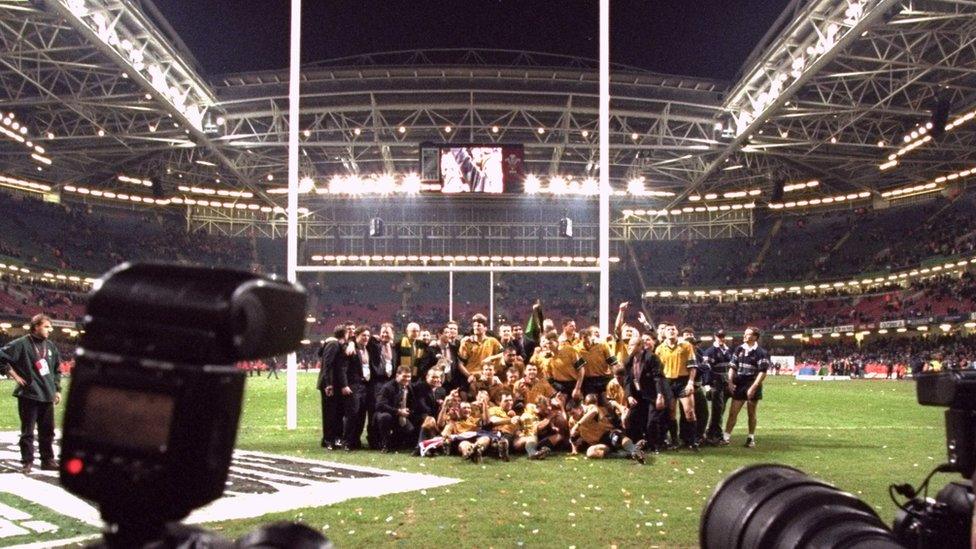
The 1999 Rugby World Cup staged in Wales was the catalyst for attracting major sporting events
The Welsh Rugby Union desperately needed to attract regular events, whether sporting showpieces or concerts, to its newly-built Millennium Stadium to help pay off the redevelopment debt - or risk going out of business.
After the stadium was built for the 1999 Rugby World Cup, bosses of the £121m city centre arena offered the FA a cut-price deal to take football's famous FA Cup final out of England for the first time in 2001 - and the League Cup, Charity Shield Football League play-offs and rugby league's Challenge Cup soon followed to Cardiff.
Sir Terry Matthews, backed by the Welsh Government, invested heavily to bring the 2010 Ryder Cup to his Celtic Manor Resort in Newport.
Cardiff was controversially chosen to stage its first Ashes Test in 2009 by the England and Wales Cricket Board, with its Welsh chairman and Welsh England team managing director, as government and local council helped redevelop Glamorgan's Sophia Gardens ground.
"The Millennium Stadium and Welsh rugby couldn't survive by the stadium holding rugby alone," recalled former Millennium Stadium chief executive Paul Sergeant.
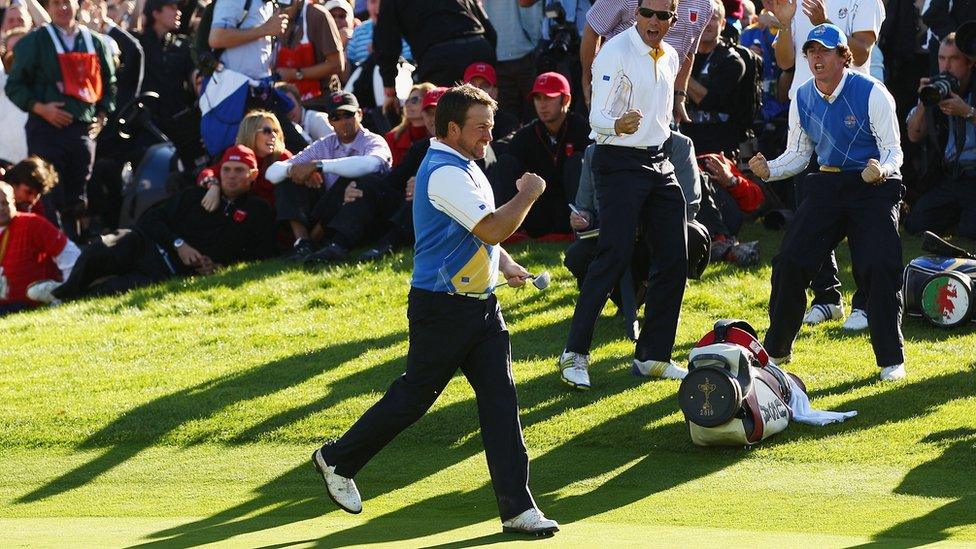
The 2010 Ryder Cup in Wales was won by Europe
"So we had to get off our backsides and find events for the stadium. The local hoteliers were desperate for us to stage events because they were struggling.
"Wales has subsequently done a good job, it was a team effort and everyone benefitted."
As Wales earned a reputation for its welcome and ability to stage some memorable football cup finals, the Welsh Government realised there was a market in event tourism.
Thus, its major events team was formed.
Watershed
Cardiff has since held two Ashes tests, but the 2010 Ryder Cup was Wales' "watershed".
The Welsh Government believe it convinced Uefa Wales could host their blue riband final.
"The Ryder Cup showed we could host a brilliant event in the most-testing of circumstances," said Mr Skates.
"We pulled off a hugely successful event despite a potential crisis with the severe weather and the event going to a fourth day for the first time.
"The Ryder Cup also delivered a step-change in our destination management for raising visitor numbers and demonstrating Wales is competitive."
The opening event of the 2012 London Olympics, six European rugby cup finals, 20 further Rugby World Cup games, the 2016 World Half Marathon Championships and events such as Wales Rally GB, Speedway Grand Prix and Ironman Wales in Tenby have enhanced Wales' standing.
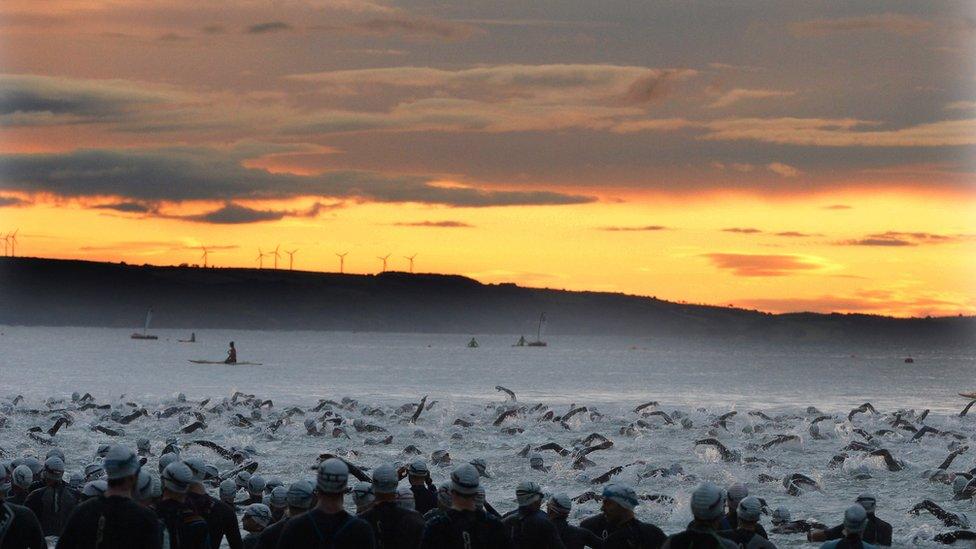
Ironman Wales has been held in Tenby every year since 2011
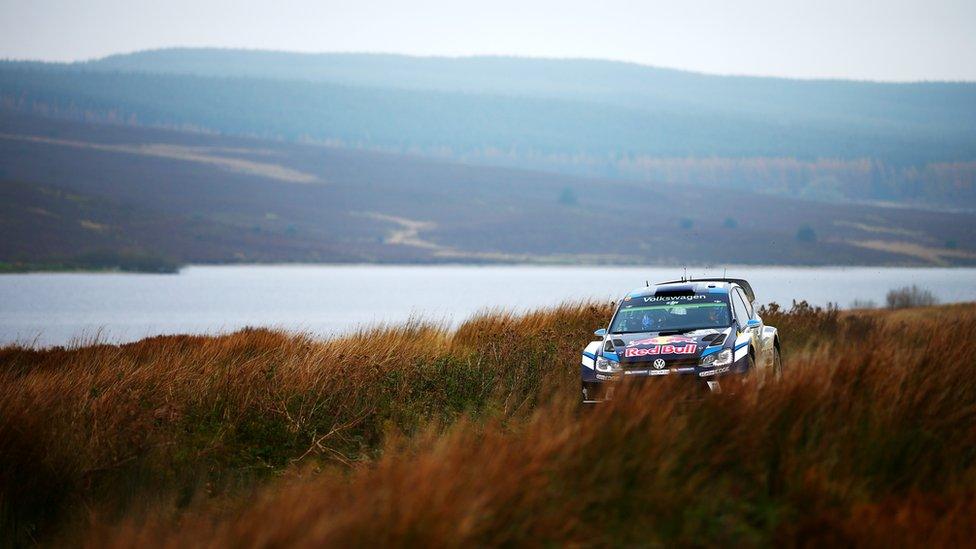
Wales has staged the Wales Rally GB every year since 2000 and is final round of the World Rally season
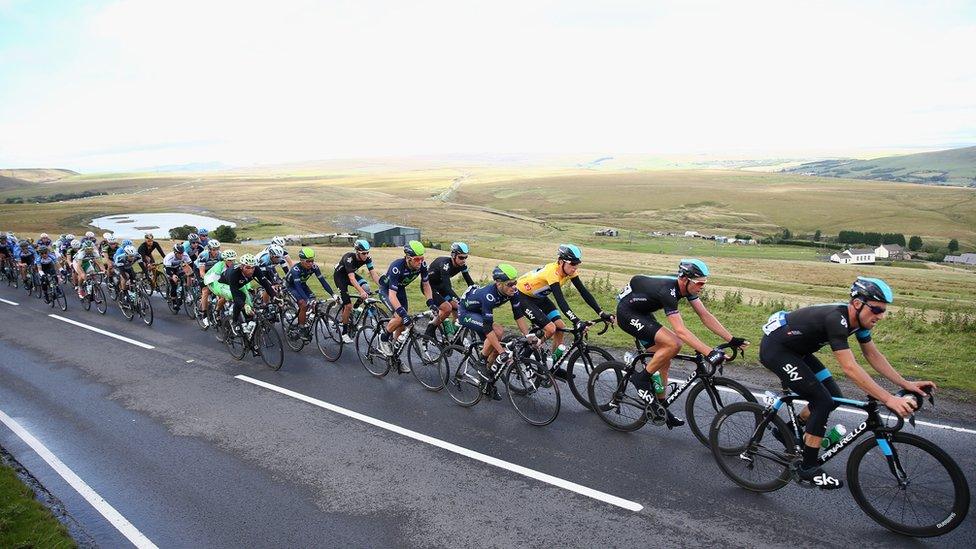
Wales will hold the final stage of the 10-stage 2017 Tour of Britain in Cardiff on 10 September
Cycling's Tour of Britain returns to Wales for an eighth successive year in September, concluding in Cardiff.
The Welsh capital is also a host city of cricket's 2019 World Cup, while heavyweight boxing world champion Anthony Joshua's rematch with Wladimir Klitschko could be held in Cardiff in October.
But the Champions League is the big one.
"It will offer an unprecedented advertising equivalent through broadcasting around the globe," said Mr Skates.
"Football resonates with so many people and in our key tourism and investment markets like Germany and the United States."
But economists are sceptical about the impact major sporting events have on the Welsh economy.
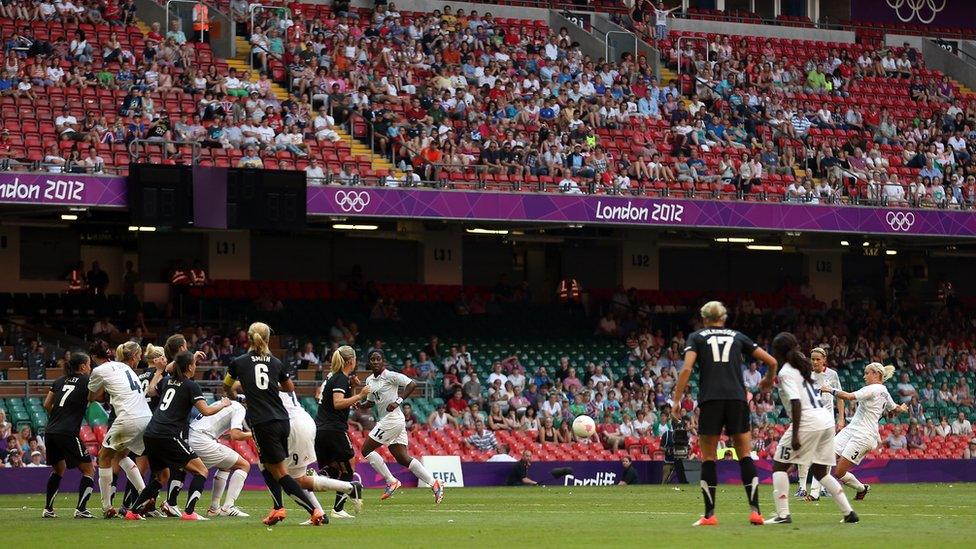
Great Britain beat New Zealand in the women's football in Cardiff in the first event of the 2012 Olympic Games
"There is no evidence to suggest that hosting major events does your economy any good," said Prof Calvin Jones, a major events specialist at Cardiff Business School.
"That's not to say local businesses don't do well out of it, but a week-long event with tens of thousands people might bring in £50m - and when the Welsh economy is £50bn per year, it really is a drop in the ocean.
"The Champions League final will be brilliant but it can't replace your bread and butter city development strategy of skills, inclusion and innovation which, evidence suggests, are much more important.
"My question is, are we expecting too much financially of major sports events? My take is, even if it's a zero net impact on the Welsh economy, don't worry about the finances and let's just have a good time."
- Published30 May 2017
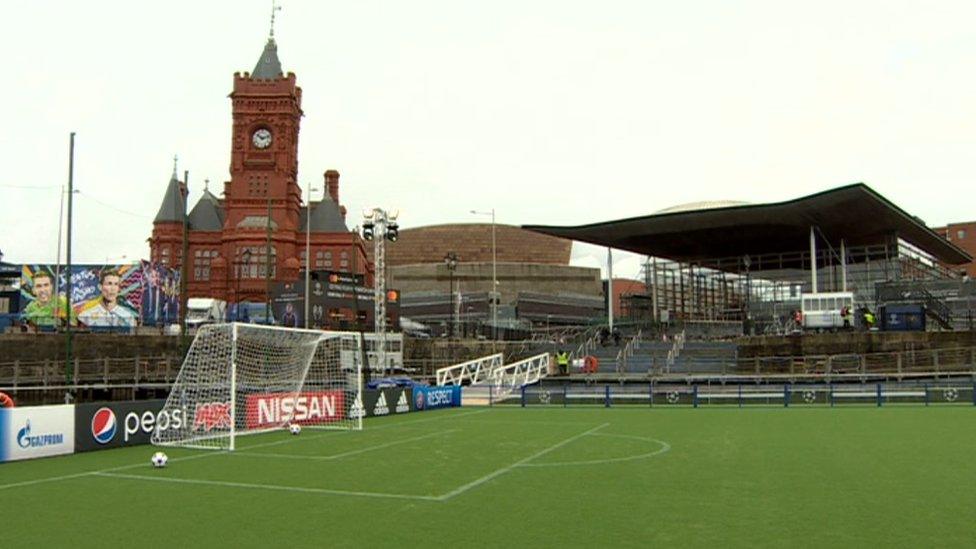
- Published3 June 2017
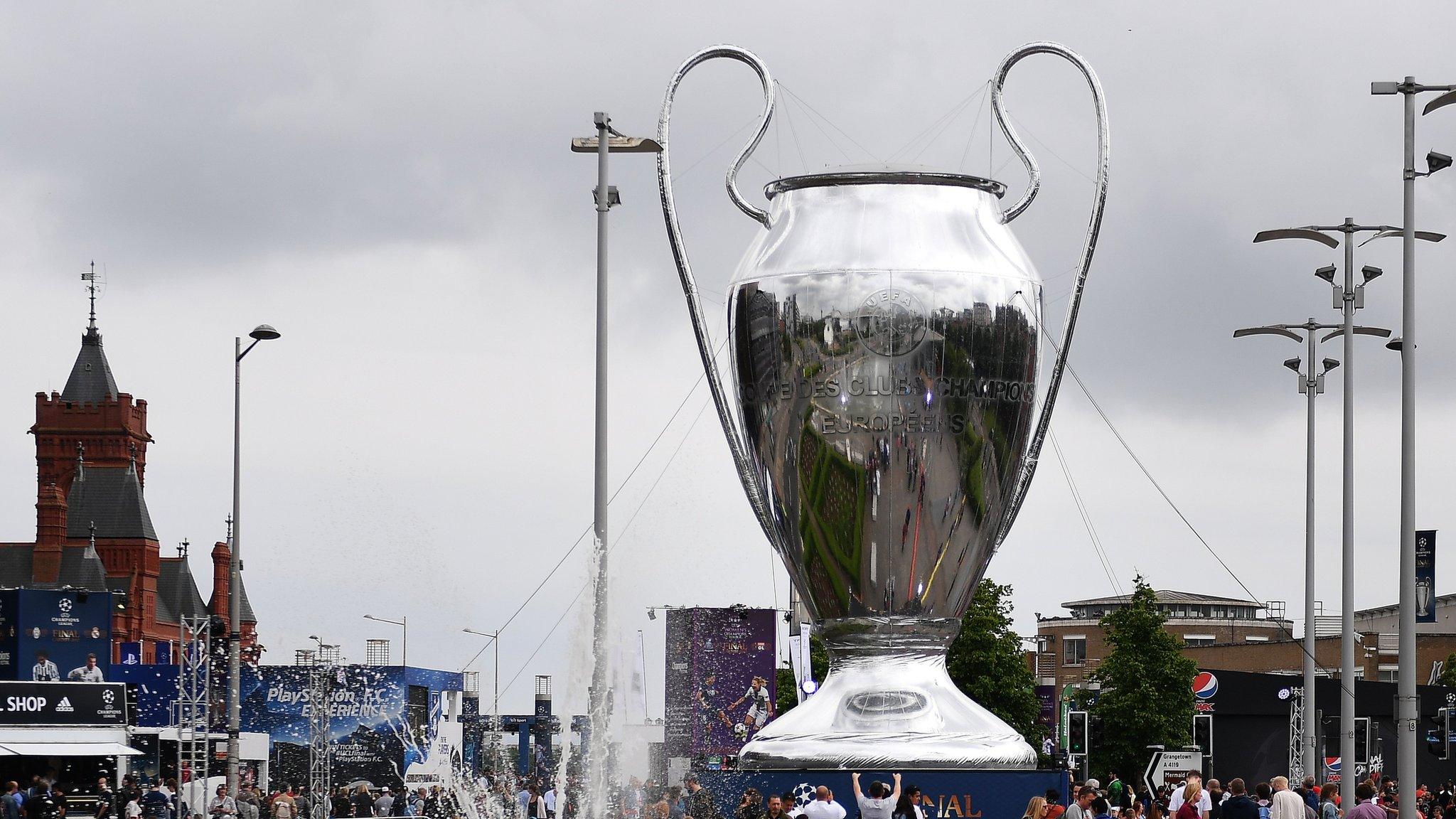
- Published29 May 2017

- Published26 May 2017
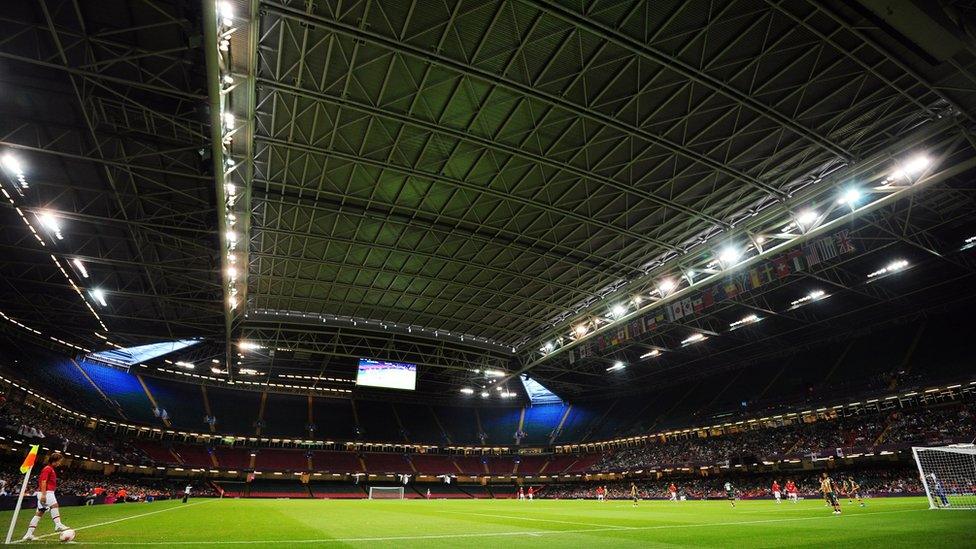
- Published7 April 2017
